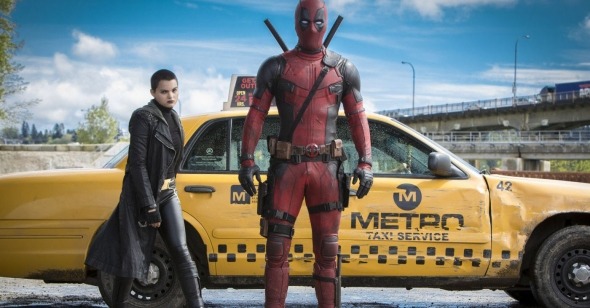11 Offenses of 2016
It was a year of such gargantuan offenses in the world that it almost seems silly to focus our negative energies on movies. Now and forever, “Offenses of 2016” will refer to something quite other than cinema, which was by comparison a paradise of calm, dialectical sanity. Nevertheless, since the world is going straight into the toilet, why not take some lousy movies with us? Tradition dictates that we list our annual faker’s dozen of movies that made us cringe, and if this year there was no Sundance darling as gimmicky-slick as Me and Earl and the Dying Gaul, no prestige bi(curious)opic as clunky and calculating as The Imitation Movie, no cheapjack found-footage horror junk as exploitative as The Suckrament, and no official Xavier Dolan release, we could still sweep up a few cinematic dust bunnies for the trash bin. If you enjoy this, please don’t share with your Film Twitter friends. We don’t want to be part of your stupid conversation.
[Capsules by Eric Hynes, Michael Koresky, Violet Lucca, Adam Nayman, Nick Pinkerton, Jeff Reichert, Michael Sicinski, Justin Stewart, and Farihah Zaman.]
Deadpool
They called it the “Deadpool Effect”: when Marvel Studios’ star vehicle for the relatively obscure wiseacre hitman character appeared in early February, it did significantly more business than any R-rated movie starring a fourth-wall-busting Ryan Reynolds was supposed to do. If some of us failed to find this development particularly revolutionary, it’s probably because we’d seen this movie before. As with so much in the Marvel Comics Universe, the “Merc with a Mouth” was born through a confluence of larger forces at work in popular culture. Dirty Harry and Death Wish and an early ’70s appetite for vigilantism narratives begat The Punisher, while in the early ’90s the Flavor of the Month was flip, irreverent, rather nasty snark, exemplified by the stand-up persona of Dennis Leary and the breakthrough works of Tarantino, a style that can be identified as entering its period of decline on November 25, 1998, when Peter Berg’s Very Bad Things was released. If Deadpool, the cinematic equivalent of a seventh-grade dead-baby-joke contest, did one thing right, it’s punctually appearing at the appointed time in the nostalgia cycle when such attitudes can again seem novel. It’s a superhero movie that makes a show of mocking the tropes of superhero movies, this purportedly operating as a cure for “superhero fatigue,” though I find an even better remedy for this condition is not watching superhero movies at all. The action set-pieces are all unmemorable trash, which is par for the course for Marvel product outside of the Captain America films, while the distinguishing element here is the ribald humor, including hedged-bet “offensive” bits of business with Deadpool’s blind, black roommate and gags about getting pegged in the ass and masturbating with an infant-sized hand. I hated the whole thing so much that it long ago ceased to be a movie, transcended mere moviedom to exemplify a streak of all-American nihilism that was impossible to ignore in 2016. It’s a trolling Twitter egg account, it’s a strawberry-flavored vape smoke emerging from underneath a fedora brim, it’s a brimming cache of revenge porn, it’s Kermit tea memes and #Pizzagate and the comments section—any comments section—all rolled into one. The only consolation is that the studio mechanism moves slowly, and the first imitations probably won’t come along until 2018. —NP

Jackie
It’s often said that tragedy plus time equals comedy, and Jackie’s laughable representations of history and the grieving process certainly bear more resemblance to an interminable Saturday Night Live sketch than the art-house prestige it intends to be. Regurgitating the most turgid clichés about Jacqueline Bouvier Kennedy (stiff upper lip, bouclé suits, gowns, etc.), the script’s primal crime is confusing female canniness with haute bitchiness: Jackie snaps at the nameless journalist (a.k.a. framing device) who’s profiling her over anything he says; she yells at Bobby Kennedy for endangering her children (even though that wasn’t really the case by a long shot); she glares at Johnson aide Jack Valenti (name-checked for no perceptible reason) just for good measure. What are meant to be intimate views of her private struggle—crying in a mirror, crying in a shower, crying while stalking around the recently re-glammed halls of “the peeh-puh’s haws” with a big ol' tumbler of vodka as the title tune from Camelot blares—could’ve been taken from a repro girl’s Instagram account. The thunderingly unnatural chats between Jackie and Bobby about how to best shape legacies are bad enough, but in Natalie Portman’s dopey facsimile of Mrs. Kennedy’s mannered voice, the film reaches a level of excruciating camp. The one saving grace is that you can do the voice with your friends after suffering through this—that’s the comedy. —VL
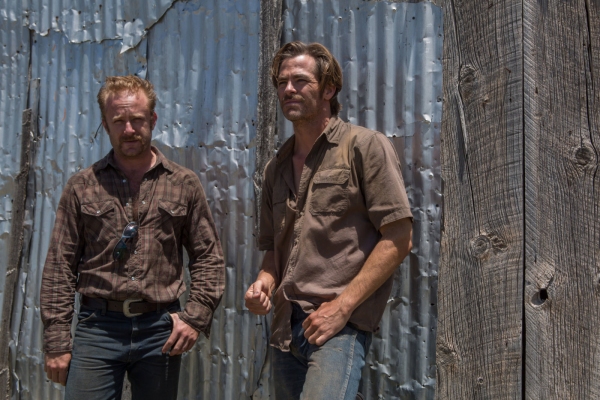
Hell or High Water
Admittedly, the come-on “from the writer of Sicario” didn’t exactly fill me with hope, but I was still unpleasantly surprised by Hell or High Water, a film that’s turned up on plenty of year-end lists and has been cited admiringly in several “movies aren’t dead yet” think pieces. On one level, I understand the admiration for David Mackenzie’s self-consciously dusty genre piece about a pair of bank-robbing brothers and the laconic Texas Ranger on their tail; the setting and the scenario have the sort of long, clean lines that evoke memories of both vintage and new-style westerns, shot through with a frisson of present-tense economic anxiety—everywhere the camera goes, the streets and highways are dotted with foreclosure signs. Hell or High Water gives off all the signals of being a tough, resonant little thriller, except that as scripted by Taylor Sheridan, it’s actually an insultingly pat piece of work. Besides being a desultorily predictable study in contrasts, nutty Tanner (Ben Foster) and noble Toby (Chris Pine) are given such meticulously jerry-rigged motivations for their crime spree—it’s a joint fuck-you to unscrupulous bankers and an abusive father—that the ostensible “moral ambiguity” of the material is actually crystal clear. Note also how careful Sheridan and Mackenzie are to not tarnish Toby’s principled antiheroism when the one thing that might have actually complicated the material would be the stauncher sibling descending into impulsive violence. As for Jeff Bridges’s Oscar-buzzed lawman shtick, it’s pure muscle memory by a master actor (he even sells the worst of the dialogue), but Sheridan’s insistence on giving the character a doomed Native American partner (the fine Gil Birmingham), whose death at Tanner’s hands finally gives him an emotional buy-in to his assignment, feels sentimentally exploitative. As in Sicario, the use of non-white characters as collateral damage to the action is dully mechanical, and suggests that Sheridan knows exactly what he’s doing. Not a compliment, by the way. —AN
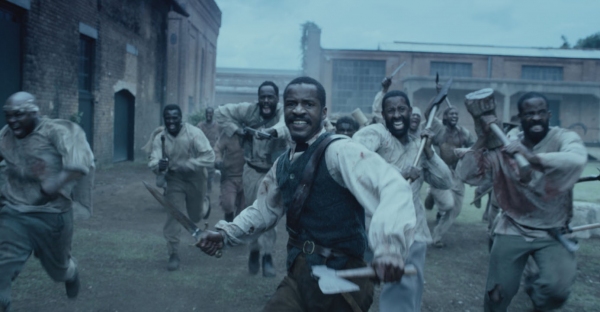
The Birth of a Nation
When it premiered at the Sundance Film Festival last January, at the height of the #OscarsSoWhite backlash that encouraged widespread calls for an Academy Awards boycott, director-star Nate Parker’s debut feature, a biopic centered on the bloody 1831 uprising by slave Nat Turner, was greeted with enthusiastic standing ovations and extra-early predictions of an Oscar victory in 2017. There were a few quiet squeaks of dissent, wondering if its glossy, Hollywood-epic approach wasn’t a little facile (it seemed to borrow heavily from that bludgeoning idiot stick known as Braveheart), but they were polite, mostly drowned out in the chorus of approval, and Fox Searchlight summarily bought the film for a very robust 20 million. Then in August, just two months before the film’s scheduled release, the extremely disturbing details of the now-notorious rape that Parker and his college roommate (and Birth of a Nation coscreenwriter) were charged and acquitted of in 1999 re-emerged; the alleged victim committed suicide in 2012, adding an extra layer of tragedy. The film did indeed become a tinderbox, but not the one Searchlight was hoping for, and the result was mixed reviews and a hard pass from moviegoers. A narrative began to build that the film’s poor reception was largely due to the media outrage about Parker, and while there is clearly some truth to that (critics were certainly all too eager to praise the film before they knew anything about its maker’s past), it leaves out the crucial piece: the film is quite terrible. It’s a historically reductive, thuddingly symbolic parade of cinematic clichés that serves to deify its own star-auteur as much as its historical protagonist—who certainly deserves a more complex, considered take than a single-minded revenge yarn that makes Django Unchained seem like a model of multilayered political filmmaking. Many viewers, like myself, who saw the film and disliked it well before it was cloaked in controversy, have resented being informed that our responses were tainted by the truth about Nate Parker. At least the film’s defenders and detractors can completely agree on one thing: The Birth of a Nation deserves to be judged on its own merits. —MK

Lo and Behold, Reveries of the Connected World
The biggest problem with Lo and Behold, the lesser of two documentaries released in 2016 by 74-year-old Werner Herzog, isn’t that it was conceived as branded content for tech company Netscout. Or even that such a self-serving project was readily legitimized, with minimal disclosure about its provenance, by numerous festivals around the world. (It premiered at Sundance last January.) No, the biggest problem with Lo and Behold is that it lazily coasts on a different brand—the Herzog brand. And also, lo and behold, that it’s a negligent, undercooked, occasionally foul-spirited pot of slop. I’ve no desire to review the reviewers who gave this film a pass (93% on Rotten Tomatoes, brah), but its appeal seems to rest largely on longstanding collective affection for the German jester-philosopher—affection better mobilized toward his endearingly shaggy and sincerely curious follow-up, Into the Inferno. A ten-part inquiry into the Internet, alternatively celebratory and punitive about its potential, Lo and Behold never exhibits deep knowledge or sustained thoughtfulness about any of its topics, choosing instead to lily pad from one to another, perfunctorily slathering his stentorian shtick over whatever copy his assistants have given him to read. From an opening VO that ludicrously over-dramatizes a banal shot of the UCLA campus (“Today, not one of the students is aware that this is ground zero of one of the biggest revolutions we as humans are experiencing,” a line that yielded the quickest unsolicited laugh in a press screening since Don Cheadle’s opening salvo in Crash) to subtly unkind asides (via visual compositions and edits) about interview subjects who apparently never earned the director’s sparing humanizing touch, this is Herzog unbound by conviction or taste. There’s a surfeit of familiar stock footage, a lack of discipline in visual strategy, and a chapter structure that fronts for the fact that he has no overarching ideas, no discernible reason to make this film—other than that a corporation paid him a lot of money to make it. Here’s hoping that Herzog still has more to offer, and that those offerings don’t reflect this frivolous dilettante for hire. —EH
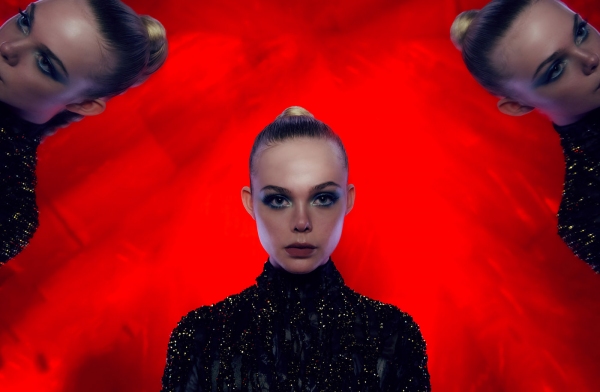
The Neon Demon
Nicolas Winding Refn’s The Neon Demon may provide plenty of visual thrills with its exploding glitter, rippling bodies, and sumptuous textures, but its insistence that what we’re watching is on some level an expression of how women think and act is inexcusable—not just because it is retrograde, but because it is a total bore. It is far too easy to dismiss this tiresome, relentlessly reductive white man’s take on the nature of female friendship as a harmless bit of spectacle, or to say that detractors are merely unable to stomach the extremity of the satire, because many critics’ eagerness to accept it as satire at all implies that there is something essentially true about it, just pushed to its logical conclusion for the sake making a point. The real horror of this thoroughly polished turd lies not in the acts of envy-fueled girl-on-girl violence or its many prettily oozing pools of blood but the idea that anyone might believe its events are derived from actual human feeling rather than layer upon layer of stylish nothing. Winding Refn has depicted women and their motivations as so fundamentally “other” (power-hungry zombie cunts who will reach out to each other in rote gestures of communion one minute, and literally claw each other’s eyeballs out the next) that it renders them repulsive, subhuman. Hollywood has a long and illustrious tradition of work that contemplates women in the entertainment business, corrupted and torn apart by competition, from All About Eve to Valley of the Dolls—or for a contemporary example that is actually thought-provoking and complex rather than slick and simplistic, Sophia Takal’s smart, unnerving Always Shine. Which serves as a reminder that The Neon Demon does nothing new. It is just a film so shallow and empty that it’s no longer able to effectively critique the shallow and empty. Perhaps its director has taken the words of his film’s sleazeball photographer—“beauty isn’t everything; it’s the only thing.”—too much to heart. —FZ
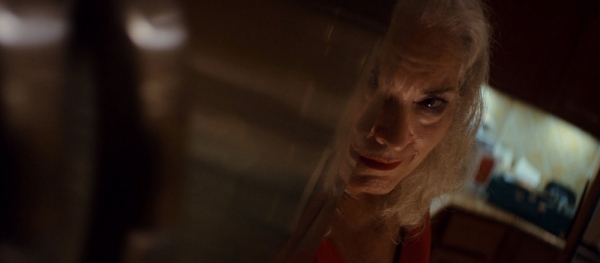
Krisha
The climax of Krisha, in which the titular protagonist, an unstable, recovering addict who has returned home to rejoin her estranged family for the first time in decades, drops the Thanksgiving turkey on the floor (spoiler alert!), should surprise exactly no viewers of Trey Edward Shults’s fawningly received debut. This pivotal moment is communicated via age-old senior thesis film tactics—a series of ridiculous slo-mo shots of a wide-eyed Krisha gasping in horror as she bobbles the bird, culminating in a floor view of gravy dripping from the pan in anticipation of the fall. Beyond the egregious turkey drop, consider also Shults’s choice to cast himself as Krisha’s estranged son, whom she spends much of the movie trying to coax away from his program in “business marketing" because of his overwhelming talents at making art that moves people. (Remember that M. Night Shyamalan, was cruelly eviscerated for making the same choice in the far more imaginative Lady in the Water.) Krisha nearly moved this viewer—to make an early retreat from the theater, but I stuck it out, aghast at its accrual of insultingly unlikely narrative contrivances and absurd stylistic tics. Was some of this shot on a consumer drone? Perhaps the only thing that does surprise about Krisha, an unevenly blended mixture of Malick-humping, awe-aspiring camera moves and tiring, po-faced long-take imitations of raw Cassavetes-ian rill life, is the pass it got, and just how much of the praise it received focused on just what made it unbearable (i.e. its bland McMansion setting—the actual Shults homestead—and the casting of his family). Though, come to think of it, in a year like 2016, when up was down and down was most certainly up, the acclaim for Krisha almost makes sense. —JR
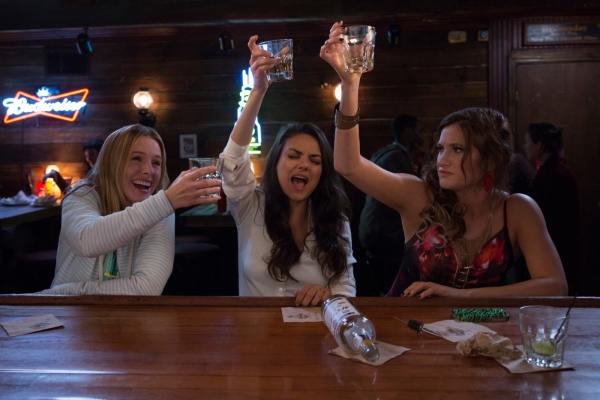
Bad Moms
At Reverse Shot we like to save a space on this list for a mainstream comedy, though it might invite charges of pettiness to “eviscerate” already-forgotten low-hanging fruit, especially after the year’s over. But these multimillion dollar trifles that purportedly sought merely to bring some chuckles into our weary lives remain an unmatchable barometer of studios’ cynical perceptions of the international moviegoing public’s low taste and tame pussyfooting around the borders of transgression. Paul Feig’s Ghostbusters-but-with-women might’ve dominated the brain-sliming social media “discourse,” but nothing highlighted the bankruptcy of a certain strain of faux-dangerous Hollywood comedy quite like Bad Moms. It’s facile to criticize filmmakers for their gender, but it’s depressing that a subject as potentially rich as young mothers comically breaking out of the shackles of patriarchal dictates was mined by two Hangover dudes (writer-directors Jon Lucas and Scott Moore), who make sure to peacock their ally status via two privilege-decrying speeches from protagonist Mila Kunis. Though the gifted cast (particularly Kathryn Hahn and Kristen Bell), like the Ghostbusters, are allowed some leeway to improv some personality into the neutered debauchery, it’s Lucas, Scott, and various American and Chinese production companies that drive Bad Moms’ conservative middlebrow message that while it might be medicinal for moms to let loose (here that means doing shots and vandalizing grocery stores in slo-mo), their ultimate happiness lies in traditional family bonds (allowing for a divorce or two). We’ve come a long way since Bad Lieutenant, and now a “bad” or “dirty” tag is the surest indicator of safe, shrugged-off comedy product. —JS
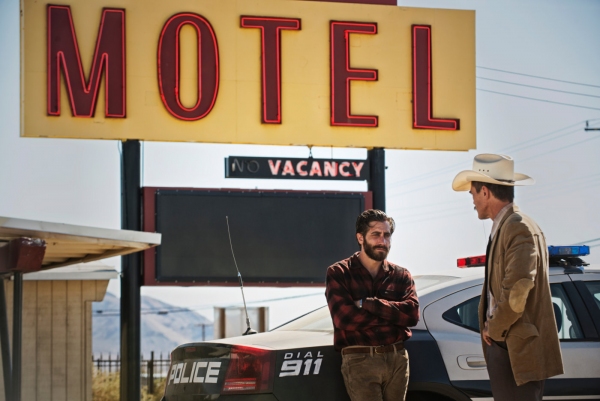
Nocturnal Animals
One of this year’s more annoying tropes has been the constant braying about how out-of-touch coastal elites need to work harder to empathize with flyover xenophobes. However, Nocturnal Animals suggests that, indeed, the media may be giving us just the simplistic sound bite we deserve. This sophomore effort by superstar fashion designer Tom Ford consists of two intertwining narratives, both pertaining to American society’s punishment of men who fail to live up to our backwards notions of masculinity. Strangely, though, these victims of gender ideology are both heterosexual white men, and they are both Jake Gyllenhaal. In the framing story—“reality”—Gyllenhaal is a struggling writer, a true artist, who loses his gallery-proprietor wife (Amy Adams) because he cannot provide. (She strays, falling in with bland-boy businessman Armie Hammer.) But in Nocturnal Animals’ primary narrative, one derived from the Gyllenhaal character’s newest manuscript, he is run off the road one night in the middle of nowhere by a bunch of marauding rednecks, forced to watch helplessly as his wife and daughter are kidnapped. These flyover yokels are strong, filthy men who do as they please and have apparently been waiting for some weak-ass city boy to come through so they could flex their superior muscle and engage in some symbolic castration. The title, you see, is not metaphorical. This is a paranoid fantasy straight out of Deliverance. The fact that it is presented so meticulously, even given the pseudo-intellectual trappings of Animals’ Dutch-doll story-within-a-story, goes a long way toward making the prosecution’s case against the so-called cultural elite. (Throughout the screening, I kept imagining Jay-Z shouting “Tom Ford!”) If this is what the wealthy worry about, then in a sense they have inflicted Donald Trump on the rest of us. —MS
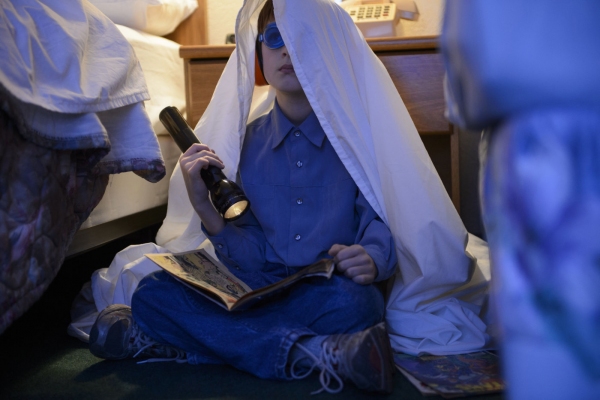
Midnight Special
Stranger Things have happened, perhaps, but Jeff Nichols’s mutation from a strong, promising voice in American independent cinema to an unrepentant ’80s pastiche pusher is a paranormal event worth investigating. Where the great Take Shelter boldly used fantastic imagery to heighten the emotional effect of its study of paternal certainty in crisis, Midnight Special gives over to genre conventions at every turn—it wraps itself in them like a security blanket. Even with Michael Shannon reprising his anguished-dad act, Nichols’s dismal inventory of sci-fi clichés—from an enchanted, amorphously all-powerful little boy to a well-meaning but befuddled scientist (Adam Driver in the most rote and least persuasive of his many 2016 performances) to faceless, black-helicopter villains and dribbly metaphysics—reveals a disappointing lack of imagination. Which, when yoked to an aggressive, borderline disingenuous earnestness—embodied in Kirsten Dunst’s scrunchy-faced performance as a mom worried about her messianic moppet—results in a parable that elicits more annoyance (and boredom) than awe. —AN
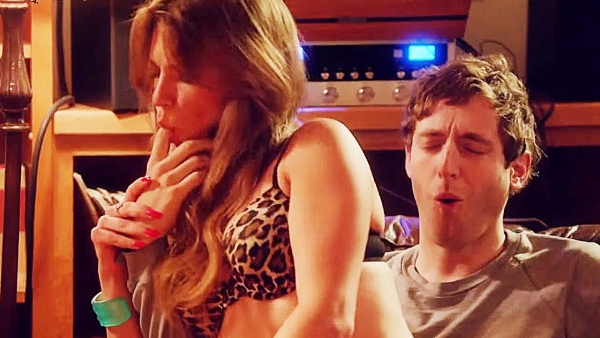
Joshy
In a year in which Richard Linklater managed to make the rowdy, sexist romping of a group of swaggering, mostly white, hetero jock assholes into something close to poetry, it may have been possible for Jeff Baena’s Joshy, in which a group of buddies try to cheer up their sad friend during a repurposed bachelor party weekend, to transcend its formulaic bros-before-hos comedy. But while Everybody Wants Some!! was the most daringly, miraculously off-trend movie of the moment, Joshy seemed like a pointless and purposeful Bechdel affront. A boys-will-be-boys weekend comedy is certainly no offense unto itself, but one that begins with the suicide of the fiancée (Alison Brie, who doesn’t make it past the credits sequence) of our pathetic protagonist (Silicon Valley’s irritating Thomas Middleditch), and climaxes with a group therapy session in which the guys teach our hero to own his anger by blaming the sad, dead woman for fucking up his life, is an entirely other kind of noxious. In between there are some great board-game jokes, terrific comic performances by Alex Ross Perry and Lauren Weedman (the latter playing a sassy hooker, though . . . oh well), and the requisite appearance by Joe Swanberg’s cute kid. But the only plot twist that might have alleviated the bad taste of the whole project is if these jerks’ remote rental house turned out to be run and operated by The Cabin in the Woods’ Richard Jenkins and Bradley Whitford, ready to murder them one by one for their narrative crimes against humanity. —MK
